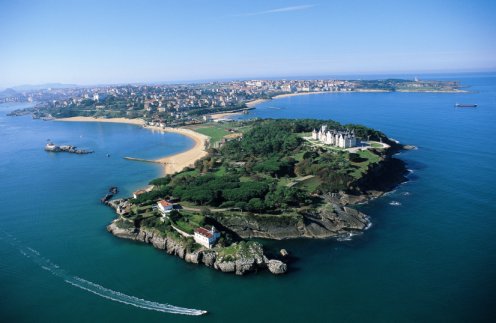The average Joe in Spain is now living worse off than in boom times. Anyone can tell you that. While some, many, citizens, scape the crisis altogether. Apart from the platitude as obvioulsy societies live better in Boom times than in Recession times, anyone can warn you of growing inequalities, and he will be right.
The same feeling you may have if you look at the landscape in Mumbai, India. As skycrapers grow in number and height and slums grow and invade previously green spaces, you may have the feeling of growing inequality, and you may be right.
Same feeling you may have in China, when you compare Shangai with some backward province. They would have the biggest slum on Earth if people had the chance to build it. But since they don’t, you cannot see it. But as cities expand, inequality is growing. Signs of danger in forthcoming times.
But if you think of great times, regardless of your point of view, you can think of the Mughal Empire, the Roman Empire, or even of Chairman Mao’s China, and think that the good times are behind.
But don’t make a mistake. In those glorious times, 99% of the population were at the limit of starving. Marie Antoinette may have lived as a Queen, but she ended beheaded for a reason, a reason that she could not understand when she suggested to give cookies to the mob if they were hungry. Any bad harvest could kill a sizeable chunk of the population, and if there was hunger and disease at the same time, half of the population dying was a possible scenario.
Since the industrial revolution in the Nederlands, UK, and some European locations, the things have changed. As it has been spreading all over the world, inequality is less than ever. And if some folks live worse off, is specially because they compare themselves to their richer cousins.
No one starves in Spain. Many people have made bad investment decisions and they will pay a price for it. Some will not be able to afford the holidays in Mexico this year so they will decide to stay at home. Some people I know have had to cut on Saturday restaurants. And some have real trouble to get to the end of the month, yes, but not hungry.
Many people in India and China are still starving. Many more are hungry. Obviously, too many, I may add. But less than ever. Mao’s China was probably the poorest in centuries, but Deng Xiaoping opened the capitalist way that is slowly (yes, if you think of all of China, not of the booming part only) reversing the trend. The same happens in India (and sooner it would happened if the current government was as brave as some that preceded them, instead of wasting India’s time).
Of course, if you look locally, there are some losers and some winners, but humanity wins. And if you look at the greatest foes of this 2012, you will here about debt affecting many people, but you will here a lot about public debt. Don’t blame that one on the capitalist system, blame it on bad governments.
The world overall is more equal in opportunities. More than ever. Capitalism, with its flaws, has started a globalisation trend that is only benefiting humans.












